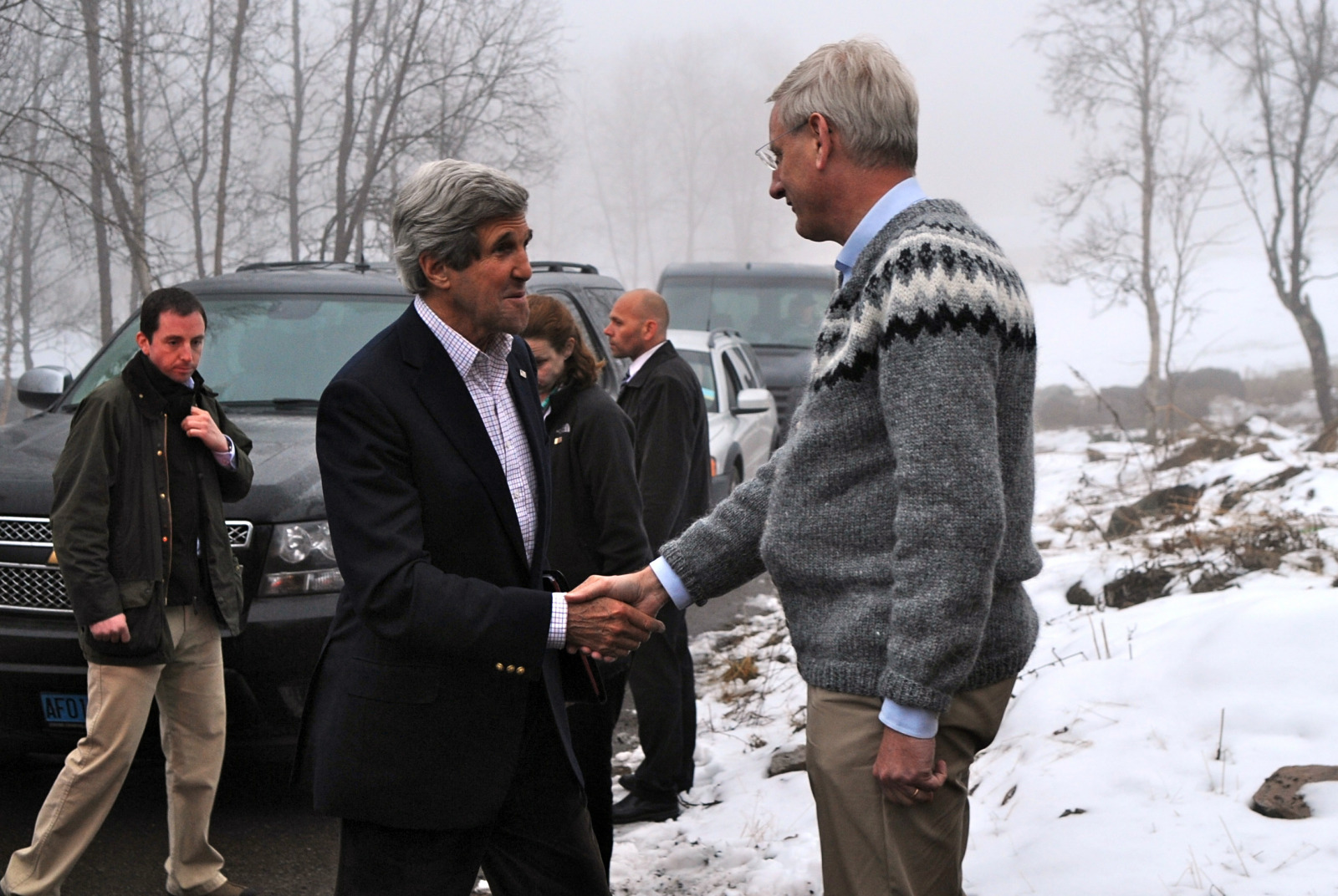In 2010, when Wikileaks released a major trove of secret U.S. diplomatic cables, many were amused. The diplomats had used derogatory, albeit fitting descriptions of various players in the world political arena. At the American Embassy in Stockholm our Foreign Minister was characterized, short and sweet, as "a medium-sized dog with a big-dog attitude".
The diplomatic dog analogy is striking. If the European foreign policy arena is an American kennel, Carl Bildt is definitely the one dog that is most loyal to his master, namely Uncle Sam.
This dog is the one that barks the loudest when his master's interests are at stake. Each time an atrocity is committed anywhere in the world, Carl Bildt is usually the politician – Americans included – who is quickest and most categorical in pinning the blame on whoever happens to be America's enemy at the moment. The culprit's name may be Putin, Saddam, Assad or Yanukovych and evidence for the accusations, usually put forward via Twitter, is rarely needed.
At the beginning of this year, as snipers targeted people at the Maidan in Kiev, Bildt concluded, without delay, that the democratically elected President Yanukovych had "blood on his hands". This occurred despite the fact that, even today, it is highly unclear what really happened during the mass demonstrations in the Ukrainian capital. Not least given that the U.S.-backed regime has refused to allow any impartial investigation into the shootings.
Be as it may. One day we might find out who really ordered the shootings on the Maidan. But one question remains: With what right does Carl Bildt accuse others of having blood on their hands?
We are talking about the same man who, back in 2002, worked with the lobby group "Committee for the Liberation of Iraq" (CLI). As war lobbyists, CLI used fabricated evidence from the American government to drum up support for an American military intervention in Iraq. In exchange for the war propaganda, Bildt was offered a top job in Iraq after the war.
"Bildt saw the war in Iraq as his chance for a comeback into big politics. By supporting the CLI, he wanted to show the White House that he was a man to be trusted," a person with ties to the neoconservative lobby group told Swedish daily Expressen in February 2007.
The result of the Iraq war is well-known. It never really ended, which was unfortunate for Carl Bildt with regard to the job he had been promised. But more so for others. In Iraq, hundreds of thousands were killed, millions were displaced and literally trillions of American tax dollars were wasted to no benefit. The war was followed by a decade of chaos, now culminating with Islamist gangsters fighting for control of the entire country, with a view to carrying out an outright genocide of the Shiite and Christian populations.
For Carl Bildt, however, Iraq turned out to be a lucky strike. In 2002 he had served not only as a war lobbyist to start the war, but also as a member of the board of directors of asset manager Legg Maso, with major interests in the American war industry. That position earned Bildt more than 1.25 million euros, thereby earning a great profit from a war he himself had been busy inciting.
This dog needs a good scrubbing to remove the thick layer of clotted blood from its medium-sized paws.
It is possible that the Swedish Foreign Minister at some point in his political life has recognized the duty to advance the interests of his country and his people. If so, that was a long time ago. Evidence suggests that it was already back in the 1970s, when Carl Bildt first made friends with American neocon spin doctor Karl Rove, that the young politician – then a very small dog – saw the fastest way to wealth, power and glory: The best possible tail-wagging for the American superpower.
Soon it was 1976. In that year's election, Sweden’s middle-right parties had beaten the leftist coalition. Days of secret government negotiations followed. On a daily basis, Bildt leaked all he could remember to the embassy. The U.S. State Department knew about the new Swedish government being formed long before any information reached the voters that this government was supposed to work for.
By all accounts, this Foreign Minister's career will come to an end with the upcoming parliamentary elections. Carl Bildt will hardly be missed – probably not even by his American handlers, who might think that he has tended to go too far in his vulgar servility. For Bildt himself, a decade of rewarding international positions will follow. This gray eminence will jump around between American think tanks and international organizations. Perhaps we will see him in the EU, perhaps in the UN.
When the second career is over, the aged statesman can sit back with a secure retirement, possibly at a resort in sunny Florida – while his native land that he leaves behind is torn apart by internal conflicts. Possibly, these tranquil days might at some point be disturbed – if some of the offenses that Bildt is apparently guilty of become the subject of a criminal investigation.
FRIA TIDER





